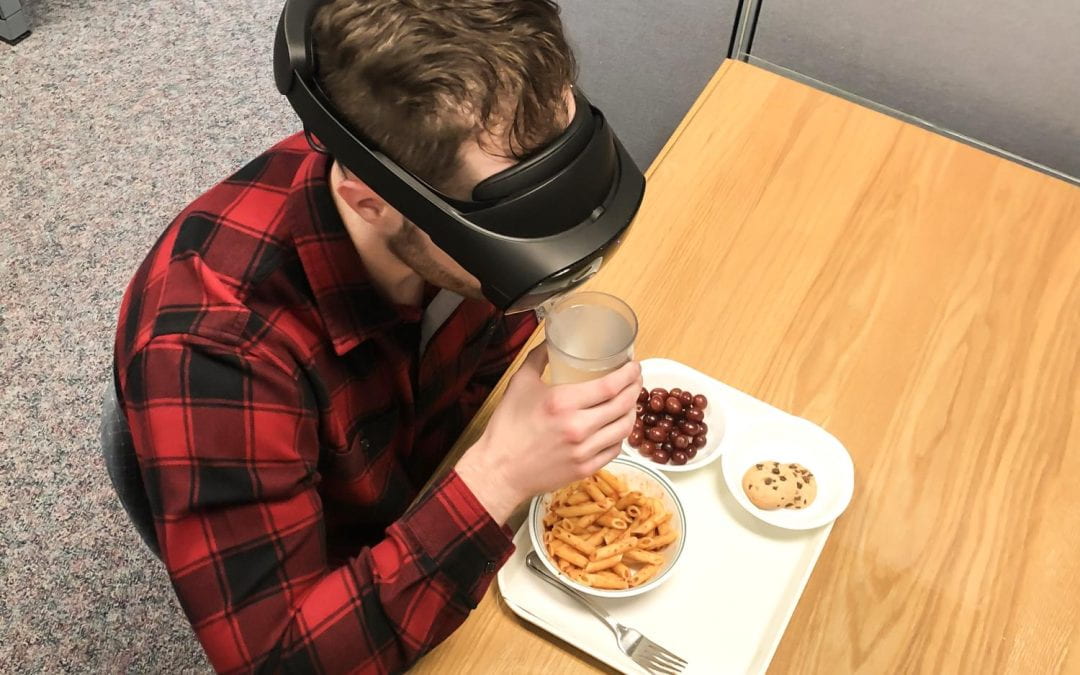UNIVERSITY PARK, Pa — In 2020, more than four-in-10 people in the United States had obesity, an increase from three-in-10 people in the year 2000, according to the Centers for Disease Control and Prevention. To better understand eating behaviors and food choices that may contribute to obesity, researchers investigate the conditions and environments people encounter while eating in the modern world — like smartphones, advertisements, and the company of others. Now, researchers in the Penn State College of Health and Human Development found that mixed reality, or the inclusion of real-world video footage into a virtual environment or vice versa, can simplify and improve the way this research is conducted.
With the support of the Center for Immersive Experiences, Travis Masterson, Broadhurst Career Development Professor for the Study of Health Promotion and Disease Prevention at Penn State and assistant professor of nutritional sciences, and his graduate student, John Long, evaluated the use of mixed reality in eating behavior and food choice studies.
They published their findings in Frontiers in Nutrition.
Original Article: https://www.psu.edu/news/health-and-human-development/story/mixed-reality-technology-may-improve-research-eating-behaviors/


Recent Comments